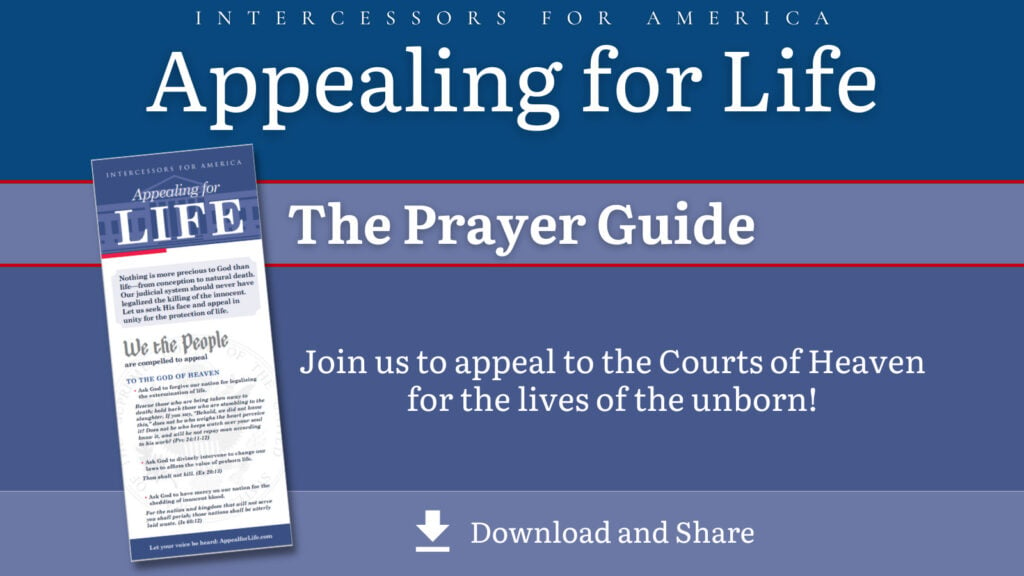Are IVF and Surrogacy ‘Pro-Life?’
Middle School Girls Walk Out of Sports Competition Against Bio Male
Biden Admin Rewrites Title IX
America Plans to Sanction IDF Battalion
Antisemitic ‘Protests’ Break Out at Columbia University
Are IVF and Surrogacy ‘Pro-Life?’
Many pro-life Republicans are stressing to their constituents that, despite being against abortion, they are still very much in favor of in vitro fertilization and surrogacy. But are IVF and surrogacy really pro-life, or are they just as damaging to women and the unborn as abortion? These articles portray IVF and surrogacy as morally reprehensible and far from pro-life, but what do you think?
From The Federalist. Reactionary legislation is being considered in Congress that would require the health plans covering the majority of American workers and their families to provide coverage for in vitro fertilization (IVF). Christians and Christian employers will certainly be troubled by this legislation.
Who is praying on the wall?
The bill, introduced by Republican Sen. Roger Marshall and Democrat Sen. Cory Booker, requires coverage not only for infertile male-female couples but even for same-sex couples or transgender-identifying employees. The bill appears to require coverage for medical and IVF costs associated with surrogacy, including commercial surrogacy.
Although IVF supporters are touting IVF generally and this bill specifically as pro-family and pro-life, nothing could be further from the truth. A significant fact for religious employers is that only about 10 percent of lab-created embryos are born alive. …
Any expansion of IVF insurance coverage will give aid and comfort to a largely unregulated industry that exploits, harms, and kills the poor and vulnerable — in other words, some of the groups Christ said He came to save, whether embryonic or full-grown.
The industry expands the commercial surrogacy market that commodifies and sells the wombs of poor and desperate women, often nonwhite women or women in developing countries. …
Eugenics isn’t pro-life, that’s for sure, as well as at odds with Christian belief about the dignity of every human life. However, the IVF industry normalizes the shopping of sperm and eggs on the basis of a host’s attractiveness, IQ, academic achievement, and race. Then the embryos are genetically “screened,” a euphemism for deeming certain embryos the wrong sex or genetically “inferior,” after which they are simply destroyed after their short life. …
Is it pro-life to indefinitely freeze embryos, sometimes for decades? What happens when their parents break up, divorce, or just decide they’re done paying for the cold storage? …
Children have a right to know and be raised by their biological parents. When that can’t happen because of death, or because of abuse or neglect, society rightly grieves with the child and tries to create a compassionate Plan B through foster care and adoption. How is it pro-life to intentionally create motherless or fatherless children by design — to serve the needs and desires of often unrelated adults? …
Ultimately, the IVF industry enables the abortion industry by feeding the cultural entitlement to God-like powers over life and death. …
Bills like the Marshall-Booker insurance mandate and many others now being considered … must be seen for what they are: aid and comfort to a greedy and exploitative industry trying to hide behind the good name and moral high ground of the pro-life movement.
From The Federalist. When Gloria Ruiz decided to become a gestational surrogate, she thought she was doing families struggling with infertility a favor. Now that she’s carried other people’s children twice, Ruiz doubts sacrificing her well-being for people who want to become parents by renting another woman’s body is as generous and kind as her fertility agency told her.
Ruiz, a stay-at-home military wife and mom of a child with special needs, initially saw renting her womb as beneficial to her family. They could have some extra cash but not lose their matriarch to a time-consuming desk job somewhere in a California high-rise.
Those benefits didn’t feel like a complete lie the first time she was paid to carry someone else’s child, Ruiz says, but that changed. Seven months after she delivered her first surrogate baby in March 2021, Ruiz’s agency onboarded her to be a gestational carrier for another couple. …
Emotionally and Physically Scarred
The married couple Ruiz’s agency matched her with … planned to use in vitro fertilization to join a purchased egg and the husband’s sperm or sperm purchased from an anonymous man. …
Ruiz said the couple agreed to her conditions, which included limited travel for appointments so she could care for her son. Shortly after signing contracts, however, Ruiz said, “things started going south.” The health insurance policy the people renting her body bought for Ruiz’s surrogacy-related medical expenses required her to travel about an hour away for some doctor’s appointments and check-ups. …
Ruiz was caught off guard again when, she says, the intended mother told her at an IVF appointment that her husband was disappointed they only had boy embryos to implant.
“I remember calling the caseworker and I kept telling her, ‘This doesn’t feel right. It doesn’t feel right.’ And she kept saying ‘Oh, no, it’s fine. Once they see the baby, they’re going to fall in love with it and it won’t matter,” Ruiz said. …
After her embryo transfer in July 2022, hospital documents show Ruiz was diagnosed with hyperemesis gravidarum, a severe type of nausea and vomiting during pregnancy that leads to extreme dehydration and weight loss. She became sick to the point of needing an IV, while her paid care for needs like these was an hour away.
Ruiz’s worst fears came true when she went to one of her distance appointments with the woman renting her body, only to get a call from her son’s school saying he was having a panic attack and needed his mom. Ruiz had to wait until the appointment was over to make the near-hour trek back to pick up her son. …
Health records she shared with The Federalist show Ruiz went to the emergency room multiple times for pregnancy-related complications. She eventually went into preterm labor and rushed to the hospital she knew the secondary insurance would cover. …
When Ruiz arrived, the obstetrician told her she needed to deliver. During labor, the baby’s heart rate began to drop, Ruiz says. Pushing at nine centimeters dilation to potentially save his life by delivering him faster, Ruiz said, “was one of the most painful things I had ever done.” …
Postpartum recovery for Ruiz was also difficult. She says she bled for 19 weeks, discovered her teeth were eroded, and had back pain. She says she was also diagnosed with secondary infertility, the inability to become pregnant or give birth after previously doing so. …
“I was admitted to a mental health facility for two months just from all the trauma and the stress of constantly having to fight them for money that part of the contract said was supposed to be mine regardless,” Ruiz said. …
With Surrogacy, Everybody Loses
Ruiz said she’s in a better place now, but warns other women who may be enticed by fertility industry advertising and media coverage that downplays these kinds of risks. Surrogacy often manifests negative physical, mental, and emotional effects on gestational carriers, the babies they carry, and the intended parents.
“From the beginning, there’s going be trauma in those babies’ lives. I think that they are ripped apart from everything they’ve ever known from the beginning,” Ruiz said. “I do think that they have a rough road ahead of them because they are now going to be raised by strangers.” …
… She also said her experience has made her examine the motivations of people who use assisted reproductive technology (ART) and surrogacy to purchase children: “Adoption is very much a real thing. Adoption is a less expensive thing. So is it really that you want a child or that you want to design your child?” …
“I think I have a hard time knowing that, in this day and age, the government is turning a blind eye to what’s really going on, which is trafficking under the guise of giving the gift of life to a ‘deserving couple,’” Ruiz said.
What do you think of IVF and surrogacy? Share your thoughts and prayers below.
(Excerpts from The Federalist and The Federalist. Photo Credit: freestocks on Unsplash)
Partner with Us
Intercessors for America is the trusted resource for millions of people across the United States committed to praying for our nation. If you have benefited from IFA's resources and community, please consider joining us as a monthly support partner. As a 501(c)3 organization, it's through your support that all this possible.


We use cookies to ensure that we give you the best experience on our website. If you continue to use this site we will assume that you are happy with it. Privacy Policy





Comments
pro-antiabortianist and preserve the life of the mother!